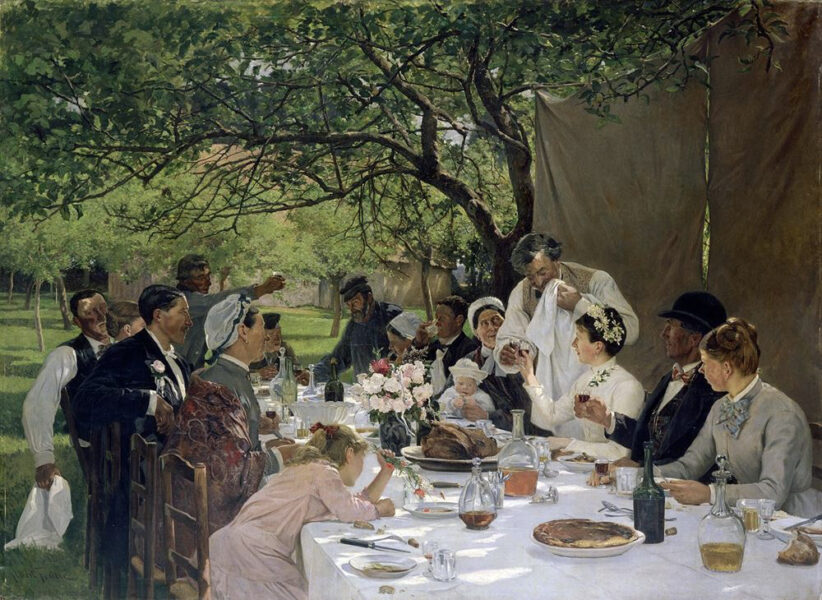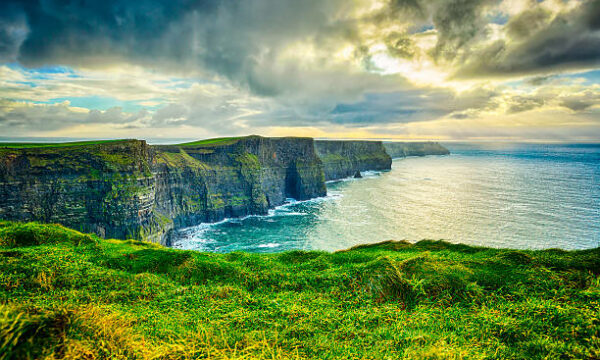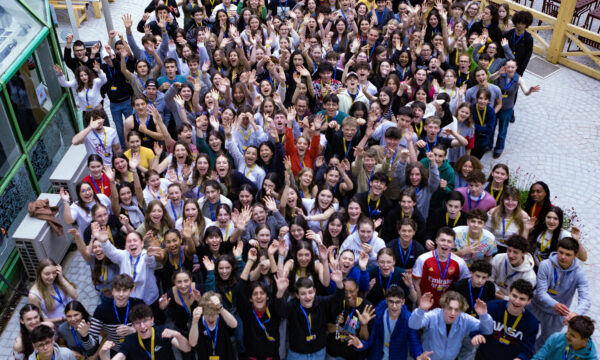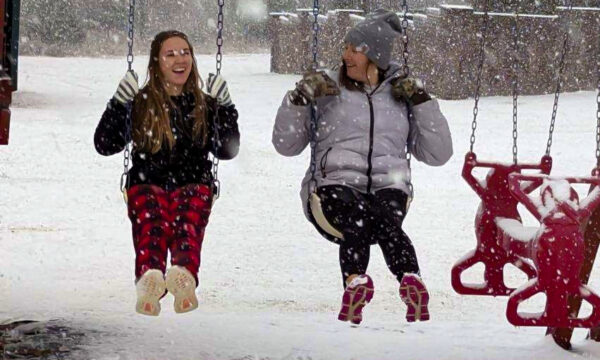5 good reasons to come to France
1. A strong sense of identity (See the ‘country’ section)
2. A chance to learn the fifth-most spoken language on earth
3. A school system based on knowledge, understanding, and a sense of reasoning
4. A certain ‘savoir-vivre’ which surrounds the country’s beauty, history, and gastronomy
5. A culture of welcoming, embraced by PIE to ensure it persists
Good to know: Our exchanges in France start with an “Integration and Preparation course” in
Paris, the week of our students’ arrival.
Experiences of past PIE exchange students:
- Watch Annabelle’s short video (former PIE exchange student, spending one school
year in France) - Read the experiences of PIE students and watch their videos
Lear more…
- About the “Hosting Program in France”
An article to describe France and to decipher her identity: this is the challenge that we, the French must accept. Describing a far-off unknown land is a difficult task but to describe your home and to easily talk about you and yours can be exhausting, making it said challenge. 3,14 has focussed on a small survey recently sent to international students currently on their exchange year in France. This sample delivers a subjective view on our country and a vague outline of this beloved land, home to a people as intriguing as they are controversial.
Images (below) ; 1° the French countryside and monuments 2° Cheeses, wines and pastries 3° They made history 4° A French language dictionary 5° Some well-known French faces 6° A Dunce cap 7° Sheet music for Charles Trenet’s “Douce France”
INTRODUCTION
This little story circulating South America, says a lot about our country and the way foreigners perceive us:
One day, when God was bored, he confided to a friend his intention to create a new planet Earth: “First of all, I’m going to make a great country with all the riches in the ground, but to balance things out, I will only put authoritarian and bloodthirsty leaders at its head… I will call it Russia; further to the west, I will make the most powerful country in the world, but it will be devastated by tornadoes on a regular basis… I will call it United States; another long and wide, very elegant and cultivated country but continuously threatened by earthquakes, Japan; another that will have the largest and most fertile forest in the world, but its people victims of great inequality, Brazil. God created all the countries in this way, then concluded: “And finally I will make a very small country, charming, with magnificent and varied landscapes, a mild climate, abundant in riches and sheltered from the miseries of nature, it will be good to live there… This country I will call France.” His friend was astonished: “That’s not fair, this country has nothing but assets and advantages”. God replied: “No, because I’m going to put the French there!”.
This story is for entertainment purposes only, but it is also significant. If it affects us, because of its explicit and mocking nature, both in form and content, it says a lot about our country. In other words, this story hits the nail on the head! Let’s take a look:
COULD THERE BE A MORE DELIGHTFUL COUNTRY THAN FRANCE…?
…with its seas, its valleys, its wooded farmlands, its forests, its pathways, its mountains; with its steep coasts, its flat, long beaches, its wide and narrow lanes; with its rivers, its fountains, its lakes, its canals, its waterfalls and streams; with its little churches, its cathedrals, its walls, its towers, its markets, its stations, its bridges, its lighthouses, its ports, its homes, its gardens; with its Dame de Fer and its Dame Gothique, Mont-Saint-Michel and its Mont-Blanc, its châteaux de la Loire, its Île de Beauté, its Dune du Pilat and its Pointe du Raz, its Mont-Blanc and its Puy-de-Dôme , its Pont du Gard and its Cirque de Navacelle, its Vieux Port and its promenade for old Englishmen, its exotic and faraway lands, its Place des Vosges and its Paris…
Could there be a more varied and contrasting country? In a relatively narrow and confined space, a land of human dimensions, France touches and tastes everything: the gently icy breezes of the North, the heat of the South, the sea and Alpine breezes, the sweatiness of the cities; in the West, France has its feet in the water, in the East it climbs; in the North, it shelters from the wind and rain, in the South, from the sun and wind too. France is blue with its seas, green with its fields, red when it blooms, yellow when the wheat ripens. It is more ‘rainbow’ than multicoloured, because the spectrum of colour that make up this country all touch, but never to the point of altering the vividness of the colours and identities.
France is subject to various influences, but not excessively so. Compared to the rest of the world, Europe is gentle, but at the heart of this Europe, France is by its very nature gentler still. It is as much Atlantic as it is Mediterranean, as flat as it is mountainous, as urban as it is rural and as Parisian as it is provincial, it is definitely mild. More than any other country, it benefits from the richness of four seasons: firm winters and clear summers, long springs and tender autumns making it understated.
Young foreigners who have gotten to know our country are not mistaken. When asked about the main qualities of our country, many of them (even though they have not visited France as travellers or tourists) mention the beauty of our landscapes… and the beauty of our monuments too. Monuments that blend into the earth as if they rose from it; which appear to belong to both the natural and the cultural through the work and wear of time.
France is subject to various influences, but not excessively so. Compared to the rest of the world, Europe is gentle, but at the heart of this Europe, France is by its very nature gentler still.
Above all, what never fails to impress our travellers, is France’s culture accumulated over centuries, deposited in layers of land conducive to welcoming them. In their eyes, four areas stand out, which will guide us like the four cardinal directions. Paradoxical when it comes to visiting a hexagon.
 GASTRONOMY
GASTRONOMY
Gastronomy takes the win. We know that globally French gastronomy is placed at the very top of the global classification. Without disparaging cuisines just as renowned, such as Chinese, Indian, Lebanese, Japanese and Peruvian food, (to name a few)… it cannot be denied that France benefits from an extraordinary abundance of culinary diversity. Some countries have a knack for distinguishing themselves in specific areas (fish, pasta, charcuterie, grilled meats, bread, beer, wine, etc.), while France distinguishes itself in many of these areas, it does not exclude any. In the French culinary field, quality goes hand in hand with variety.
In three categories in particular, our country has demonstrated such excellence that fuels its notoriety and overall reputation: wine, cheese and pastries. In these specialities, although France faces competition (notably from Italy), France remains unrivalled in terms of depth and range.
We have all heard of the three hundred cheeses with so many flavours and smells, but we know that if we add up all the French local products there are many more; it is said that there are more than three thousand different wines and nearly four hundred designations, seemingly never-ending and leaves no palate wanting for more. As for pastries, the proof of the variety and abundance is the fact that a Frenchman knows three to four hundred names of cakes, while an Englishman for example, knows no more than twenty.
Apart from quality and quantity, we can not discuss food without mentioning the central role it plays in French culture
Apart from quality and quantity, we can not discuss food without mentioning the central role it plays in French culture. The French almost always place food at the fore: they talk about ‘food’ from morning till night and can not stop talking about it. They collect recipes and culinary books, they’re passionate about TV shows sparking their desire to try dishes they’ll never taste. The French kitchen table is an institution of its own, where sharing a glass or a little something is invaluable. As for meals, they mark a French person’s day, sometimes even structuring or shaping the day’s events. So much so that the great writer Molière himself said that it is good food and not fine words that bring you alive! The French do not skip meals, they fight to defend their regional specialities and keep them alive. They could sell out a cassoulet, an aligot, a Parmentier, a pot-au-feu, a raclette, a blanquette, a fondue, an omelette, a Saint-Honoré, a Tatin, a Camembert, a saucisson, a ham, a croissant, a baguette… We know that the list is just a small example and it in fact, endless!
Through the revolution and the Declaration of the Rights of Man, France has placed itself at the centre of thinking about life and the democratic spirit. It rightly draws pride and notoriety from this position, which has remained over time.
OUR HISTORY
39% of those surveyed believe that France’s history determines its identity the best. One can’t forget that this history has developed over a long period of time (almost two millennia), that it has been shaped by centuries of events and diverse influences, and that it has evidently ended up shaping the country in turn by defining its character. France was born during the continuity of a long period of Roman presence in Gaul, (others would say “invasion” or “colonisation”), that although jostled by barbarian advances (Germanic, Frankish and others), this period left significant and permanent marks on our lives and landscapes. The Romanisation of intellect shaped our language and structures, and laid the foundations for a powerful state.
Modern-day France was born in 498 AD with the baptism of Clovis (King of the Franks), a unifier who converted to Catholicism. It was consolidated in 843 AD under Charlemagne, and then developed in several phases (all periods of centralisation) around key figures. For example, Philip Augustus the first ‘King of France’ who after Bouvines made his kingdom the most powerful in the West; Philip the Fair the first great administrator; Joan of Arc the symbol of revival and resistance; Louis XI the restorer of the monarchy; Henry IV the father of reconciliation and advocate for religious freedom; Louis XIV who synthesised the work of his predecessors both as a military leader and as an absolute monarch; Napoleon who stabilised the achievements of the Revolution, reformed the State from top to bottom and created most of the country’s current institutions, but whom in the name of European unification, plunged Europe into endless wars that turned borders upside down and had lasting political, demographic, military and social repercussions. A strange character, this young defender of the Republic who became Emperor and led France to the Restoration! Finally, Charles de Gaulle, who also symbolised a form of resistance, and whose greatest act of bravery would be the establishment of one of the most solid constitutions of the 20th century. One which would endure, strengthen executive power and stabilise the country’s institutions.
While it comes as no surprise that our young foreign students remember Louis XIV and Napoleon as French figures, it is interesting to notice that it is the Revolution of 1789 and the rights of man that they feel best symbolise our country. It is necessary to say that, beyond its paradoxical, largely bloodthirsty and authoritarian excesses, the French Revolution disseminated the republican and democratic principles of liberty, equality (and fraternity to a lesser extent); and through the Declaration of 1789, inspired nationalist movements, and more broadly, the recognition of human rights throughout the world.
Despite the controversies surrounding the French Revolution and the fact that it is now being called into question (particularly because of the impotence of universalism), France has been placed at the centre of reflection on life and the democratic spirit, due to this event. It rightly takes pride and notoriety from this position, which has persisted over time.
 THE LANGUAGE
THE LANGUAGE
It may come as a surprise that in the eyes of our exchange students, the French language is an important symbol of France. It must be said that despite our small size but due to our colonial past, our language with over 300 million French speakers is simultaneously :
- the fifth most spoken language in the world; making it a major mechanism of our culture, as much so in philosophy as in music or literature, and in this respect, has played a considerable role in the dissemination of ideas;
- a diplomatic tool both politically and culturally thus reinforcing the influence of our country across a variety of international institutions such as the UN, the Francophonie, the IOC, etc.;
- an important language from an international affairs and business perspective, particularly when looking at the tourism sector, fashion, food and technology; areas in which France excels
It’s true that the French language is difficult to master, but beautiful nonetheless ! Just like the country perhaps ?
France has been shaped by the French language which in turn has created unity. Over the centuries, through a historic process of political centralisation, cultural growth, education and the assertion of national identity, the French language would be established and enforced all over the country. Let us not forget that the second amendment of the French constitution states “La langue de la République est le français” (The language of the Republic is French), and that the European constitution acknowledges that French is the only official language of France (France and Greece are the only countries this applies to!). Our language also holds a place of privilege within certain bodies of the European Union. This complete valorisation of the French language came to be more than five centuries ago, as a way to build unity; but it came at a price, the almost complete disappearance – dare we say elimination – of the other languages of the Hexagon. France threw out the regional babies with the national bath water, so to speak. Little by little, Breton, Alsatian, Basque, Occitan and to a lesser extent Corsican, disappeared from daily life.
French was also enforced on a world-wide scale through colonialism, and as part of the teachings of the ‘elite’ locals through business, migration and the creation of the French diasporas.
A romance language with roots in Latin, French is complex both phonetically and grammatically. With its genders, its agreements, its conjugations, its rich lexicon, its overuse of double negatives and strange spellings, it’s a language that does its best to set itself apart from the rest. When we ask foreigners what is the most difficult to master in our language, most will answer ‘all of it’. This is all the more true because in French, the exceptions make the rules. We’ll see that citizens like to imitate the language!
The French language is difficult to master but beautiful nonetheless! Just like the country perhaps? As beautiful as it is rich. And how to prove this ? With these following quotes chosen helplessly and subjectively, as one would when choosing six grains of sand to describe the beauty of the entire desert:
- “Le jour n’est pas plus pur que le fond de mon cœur” (The day is not purer than the depth of my heart) – Jean Racine
- “Les grelots des troupeaux palpitaient vaguement, une immense bonté tombait du firmament” (The bells of the flock chimed in the air, as a great kindness came from up there ) – Victor Hugo
- “Sois sage, Ô ma douleur, et tiens-toi plus tranquille” (Behave, my pain, and be more still)- Charles Baudelaire
- “Le silence éternel de ces espaces infinis m’effraie” (The eternal silence of these endless spaces terrify me) – Blaise Pascal
- “Le souvenir d’une certaine image n’est que le regret d’un certain instant; et les maisons, les routes, les avenues, sont fugitives, hélas! Comme les années” (The memory of a certain image is but the regret of a certain moment; alas the houses, the roads, the avenues are but fleeting! Like the years.) – Marcel Proust
- “Passons, passons, puisque tout passe…” (We pass, we pass as all must pass) – Guillaume Apollinaire
Foreigners, like our exchange students, who have taken the time to learn our language and our country recognise the power of the French language and the extraordinary works that have been produced. From Ronsard to Proust with Molière, La Fontaine, Racine, Hugo, Stendhal, Flaubert, Apollinaire, Rimbaud, Char, Aragon… and so many others in between.. This is true of literature and poetry, it’s true even more so of philosophy because we cannot forget the free-thinkers from de Montaigne to Camus as well as Descartes, Pascal, Rousseau, Tocqueville, Bergson, Sartre, etc. It is beyond a doubt that our language has produced quality by the quantity.
What our language has done for the written and spoken word, our country has done through other means for painting, music, architecture and dances.
On the world stage, France can clearly play the game, but does it revolve around us ? Absolutely not. That’s what rubs the salt in the wound.
 KEY PEOPLE
KEY PEOPLE
In addition to its language and given its size, France has seen the emergence of numerous talents that are just as important as they are influential. Some of whom have changed the world order. Proust and to a slightly lesser degree, Céline, infiltrated and influenced the world of literature. Poussin, Chardin, Ingres, Géricault, Delacroix, Cézanne, Monet, Braque, Léger… shaped how we see. Pascal, Pasteur and Curie made leaps in science; Papin, Ader the Montgolfier and Lumière brothers made leaps with technology; the notoriety gained by Joan of Arc, Louis XIV or even Napoleon surpassed the small borders of France. Olympe de Gouges (champion of the end of slavery and for gender equality), Colmar (creator of the calculator), Moreno (the creator of the SIM card), Appert (inventor of airtight food preservation), Bourseul (telephone pioneer), Michaux (inventor of the bicycle), Cugnot (built the first automobile), Delabost (inventor of the shower) or even Laënnec (inventor of the stethoscope), Guérin (inventor of the plaster), Braille (creator of Braille) or Cadolle (inventor of the modern bra)…all of them, though lesser known than those originally cited, still left their mark on history by revolutionising our lives.
“L’EXCEPTION CULTURELLE”
On the world stage, France can clearly play the game, but does it revolve around us ? Absolutely not. That’s what rubs the salt in the wound. Because the French, as a whole, are convinced that it is quite the opposite. They are happy to cultivate this idea of ‘cultural exception’ to such an extent that they coined this as a purely French idea, without a single thought for the other countries who could themselves claim it. All of these countries, starting with our European neighbours, have their fair share of geniuses. If we were to only use literature as an example, we have Dante in Italy, Shakespeare in England, Joyce in Ireland, Nietzsche in Germany, Cervantes in Spain, Kafka in Czechia, etc. Therefore there is clearly a cultural exception in Italy, Germany, England… and in the same way, also in the USA, China, Japan, South Africa…It’s impossible to list them all. Yet, the French are self-assuredly convinced that they are on a different level, unique in their own way and have established a rare exception. This gives them a sense of superiority which they happily cultivate, making them appear to the world as a slightly ‘pretentious’ people who like to put themselves at the centre of creation.
And here we are, back where we began. Do the French ruin their beautiful nature by believing themselves to be so beautiful ? In a way, yes, as all misplaced pretentiousness conceives ideas of grandeur and gives birth to excessive pettiness.
We sometimes ask ourselves whether the French reputation of being less than accommodating to foreigners in the street, at train stations or at the airport, of providing bad service in cafés, of offering food in restaurants that doesn’t live up to its reputation, is not just simply a result of this pretentiousness. Those who think highly of themselves find it hard to give it all to those they consider less important.
As Pascal would say “We see ourselves as great and we know we are miserable”. This follows a superiority complex that can quickly turn into a form of inferiority complex. This may very well explain the French tendency towards constant disparagement and pessimism. This tendency to always prepare for the worst (without necessarily anticipating it), to complain as soon as something doesn’t work (which happens often), to minimise the greatness of others, to be depressed and anxious (we are the leading country for the consumption of anxiolytics!), trying unsuccessfully to make ourselves feel better, saying ‘no’ when we mean yes or vice versa… looking all the more beautiful, the more ridiculous we are. Coluche quite rightly said of the national emblem, the cockerel, that it’s the only animal “to sing when its feet are stuck in shit”. The great comedian and brilliant court jester that he was, gave an accurate characterisation of us in this way. It’s also how the outside world generally characterises us.
Our respondents all categorically replied something linked to these points : almost all mentioned French pretentiousness, the complaining, the disgruntled and sometimes ‘mean’ persona (this is the first shortcoming they find in the French), the splitting of hairs over the small details, adding ‘but’ when you have a good point, the constant contradiction, the bending of the rules and the lying.
Paradoxically, and interestingly, the French have a certain ability to make fun of their pettiness, to self-criticise and self mock at the same time. In true Cartesian fashion, everything will be questioned but not out loud. Instead the French prefer to hide behind a sense of humour, something there is no shortage of, and use it to their detriment. This paradoxical attitude makes us difficult and complex for foreigners to decipher. They will mistake our weakness for aggressive strength, and our absurd defensiveness for pride and contempt.
FLAWS ET CONTRADICTIONS
Ours is a strange country, one that cultivates immense contradictions. Throughout its history, it has been capable of both the best and the worst. As we have seen, innovative in many areas : Enlightenment, Human Rights, abolition of privileges and the slave trade, champion of secularism, of th separation of church from state, champion of etiquette; but behind or even backwards in others like : votes for women, gender equality, political education, inflexible with administration, only discussing the events of the 20th Century…
One idea in particular highlights this French dichotomy. In 1791, France was the first nation to formally recognise the Jewish people’s right to citizenship and by official decree, gave them the same civic rights as any other citizen. A truly global revolutionary idea that coined the phrase “Heureux comme un Juif en France” (“As happy as a Jew in France”) and allowed Jewish citizens to access the ranks and honours available in the French administration, amongst other things. Then came the case of Captain Dreyfus a century later, who himself became the victim of a genuine plot to divide the country into two enemy camps, the symbol of a typical internal French conflict. The battle for justice was won by the Dreyfusards (supporters of Captain Dreyfus) but the battle against antisemitism was lost as this debate would be far from over. Only a few decades later, the French state would engage in an immoral collaboration in which the Jews were the first victims. This paradox remains today, insofar as the fact that although France ranks second in the world in terms of the Jewish diaspora (second the the USA) – which demonstrates an open-mindedness- whilst often denounced, antisemitism is rife and resurfaces at the drop of a hat.
Ten years ago, our managers, our leaders, even our ministers would not have hesitated to say that French schools were like “the best school in the world”, ignoring the surveys, the research, the evaluations, the rankings…
Despite the discourse and efforts to promote social justice, and due to France often refusing to face reality and refusing to budge on purely ideological ideas, France continues to accumulate major inequalities regarding income, healthcare access, education and economic opportunities available to certain members of the population (notably immigrants most often from Africa, or more specifically North Africa). Historically, France has been active in opposition to change and revolutions, whether they be big or small. We like to live in the past for both the ease and nostalgia of it, until the system becomes too saturated and breaks down. We then enter periods of inevitable deconstruction that can be as beneficial as they are devastating.
Schooling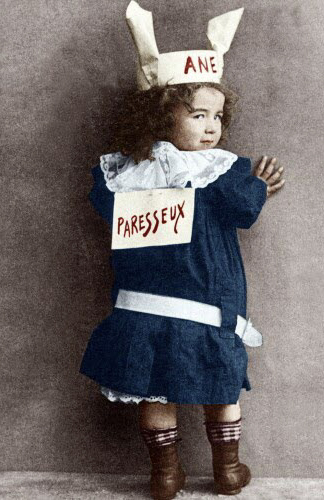
All exchange students that have come to France to study in a French High School categorically bring up the following point : the school days are too full, there are too many class hours, the time spent just listening is too long. This is then followed by severe fatigue. French students tell us that international students are often under a lot of pressure : daily and weekly schedules, competitions, the lack of sport, lack of artistic activities…
France needs to start thinking of others and take inspiration from how it works elsewhere like in Finland or Korea: to take into account the findings of cognitive science in education; to integrate a system where grades are neither the only nor the best form of assessment; that too much stress can be detrimental to learning; that extreme pressure is counterproductive ; that discipline and well-being go hand-in-hand as to a balanced lifestyle and achievements; that the relationship between teachers and pupils go together; that copying teaches you to look; that there are positives to learning things by heart; that singing in a choir can create solidarity; that drawing hones your observation skills, etc.
The idea of the mammoth, that those resistant to change were so anti, symbolises a sad reality. It is time to decentralise for the sake of our students, to give back power to the schools, the headteachers and above all the teaching staff ! It is time to let things happen on a local level. It is the only way to put into place all these solutions. The road may seem long but without any true reform, there will certainly be a revolution.
RETURN TO THE BEAUTIFUL COUNTRY
Don’t throw the baby out with the bathwater! Not everything in our school system is bad, far from it. We know that schools encourage immersive thinking, focus on what has been taught and on knowledge. So that the French act like the French, school teaches us, above all, how to discourse or in other words how to argue and contradict, and commentate too. Our know-how or rather expertise, is drawn from this.
Let’s finish with our little story… and let us not be too hard on ourselves.
France remains the 7th global economic power, a country that is strategically persistent, internationally recognised and even though France is mocked, people listen to her. Our little Hexagon is the most visited country in the world and certainly one of the most popular. It grows a sort of savoir-vivre symbolised, as we have seen, by natural and cultural beauty, by gastronomy, by the past and the ability of the French to resist the stranglehold modernity has on them. All those we surveyed highlighted a very specific albeit crucial point : France knows how to take its time, make the most of life, enjoy the beauty that is all around, cultivate friendships and laugh, adopt a ‘certain attitude’ when confronted by life that is the envy of the world. “Douce France” (Sweet France) as the song goes…
There is also something special about France, something no doubt linked to its reputation. For if there is one quality that stands out, it’s the ability of our country throughout its history to assimilate cultures, to broaden their connections, to grow from external events be they joyful or sad.
Built upon a gaulish, tribal, warlike foundation, composed of small independent tribes quickly overtaken from all sides by structural invasion, little by little France developed a strong and eventually unified people. By virtue of its geographical position and openness everywhere, France has not ceased to be affected by pervasive and external influences. Contrary to other countries, France has never overpowered the ‘invaders’; instead they have been cleverly assimilated and blended together. The so-called invaders have been frenchified, christianised and mixed into the whole. It is amusing to note that even some foreigners unashamedly consider themselves French because they themselves are French speakers and talented. We think above all of Rousseau, and from the last century, Picasso, Soutine, Brel, Stromae, Hergé, Simenon, Godart, Yourcenar, Magritte, Charlebois, Ventura, etc.
The solution of closure, of barriers or of walls is but an illusion because this solution is both impossible to implement, and unnatural. When France moved towards an enlightened tolerance, she was great.
France likes to amalgamate and assimilate. This is an undeniable strength. However, since the world has become dull, where no insurmountable obstacles remain, France is finding it difficult to continue this way. Why is this? Is it because she feels invaded? Globalisation which is occurring at breakneck speed does pose a huge challenge. The solution of closure, of barriers or of walls is but an illusion because this solution is both impossible to implement, and unnatural. When France moved towards an enlightened tolerance, she was great.
 FRANCE:
FRANCE:
YOUR HOME FROM HOME
As previously mentioned, the more France has welcomed others through assimilation, the more she has developed and grown. The opposite is also true, everytime she has chosen to close herself off, France has shrunk and become poorer. There are numerous well-known factors that explain the current difficulties of non-assimilation : failed integration and immigration policies, the lack of control over migratory flows, discrimination, an overly strong sense of national identity, the rejection of certain values, the power of communitarianism, international tensions… The solutions to these problems are not immediately obvious.
Our story does tell us something. Something, that as we have seen, does touch upon a type of superiority complex or maybe an inferiority complex… A complex we cultivate, probably unconsciously, that we try to treat with humour, and which eases each time we allow foreigners to question us, to help us to better understand ourselves collectively and inter-individually.
Ultimately, our language, our cheeses, our monuments or our ethnicity do not define our nation. Like any nation, France was built upon the desire to live together and survives in the same way : a mutual desire, a shared desire … one that is always at risk, sometimes from real threats but often from false rhetoric based upon close-minded ideology or fantasies. In this respect, it is worth noting that our country has managed, in a particularly original way, to highlight the concept of fraternity. To such an extent, that it has been incorporated in the national motto, making it one of the pillars of unity. Ernest Renan spoke of the nation as an ‘everyday plebiscite’, a type of tacit agreement in favour of living a common experience, to share projects and customs. This is the everyday experience at PIE through the hosting of international students: a programme that is only possible if host families demonstrate hospitality without idealising or demonising their host student, and if the students express their desire to integrate. Only if each person involved chooses to share the epic moments and the everyday.
Every time we invite exchange students to extensively share our country and our lives, we expand the path to living well and well-being… Living well and good well-being in what we hope is a very beautiful small country, a very beautiful small country we call France. “Sweet France” when she wants to be.
Captions from the images above:
1° – The French countryside and monuments : the Eiffel Tower, forest undergrowth, the Palace of Versailles, the Pilat dune, Provence landscape, Notre-Dame de Paris, Mont-Blanc, Chenonceau Palace, le Pont de Gard, le Mont-St-Michel (St Michael’s Mount), the Louvre pyramid, a village in Bourgogne, La Promenade des Anglais, a market in Aix-en-Provence, Etretat, Lille
3° – They made history : Vercingétorix, Clovis, Philippe Auguste, Joan of Arc, Henri IV, Louis XIV, Robespierre, Napoléon, Liberty leading the people, Clémenceau, de Gaulle
5° – Some well-known French faces : Montaigne, Rabelais, Catherine de Medicis, Ronsard, De la Tour, Pascal, Richelieu, Molière, Racine, Rameau, Lully, Madame de la Fayette, La Fontaine, Chardin, Olympe de Gouges, Diderot, Voltaire, Rousseau, Danton, Talleyrand, Ingres, Balzac, Hugo, Bizet, Géricault, Stendhal, Berlioz, Delacroix, Baudelaire, Manet, Flaubert, Rimbaud, Pasteur, Ader, Sand, Monnet, Cézanne, Péguy, Apollinaire, les Frères Lumière, Colette, Curie, Bergson, Debussy, Gaugin, Proust, Weill, Baker, Céline, Simon, Simenon, Arletty, Renoir, Jouvet, Soutine, Moulin, Malraux, Trenet, Saint-Exupéry, Char, Gabin, Camus, Kessel, Sartre, de Beauvoir, Anquetil et Poulidor, Picasso, Cerdan, Piaf, Gary, Mimoun, Jankélévitch, Sedar Senghor, Brassens, Veil, Bresson, Mitterand, Yourcenar, Badinter, Legrand, Barbara, Godard, Truffaut, Signoret, Melville, Deneuve, Platini, Coluche, Pérec, Pialat, Girard, duras, Zidane, Manaudou, Houellebecq, Stromae, Mbappé
COMING SOON : THE SECOND PART OF “DOUCE FRANCE” – SCHOOL, FAMILY LIFE AND DAILY LIFE
DAILY LIFE & WAY OF LIFE
French daily life is punctuated by a series of routines which have as much to do with the culture of the country or the region as they do with habits specific to each household, mainly influenced by the social or cultural environment and the personalities of the parents and the children. The ‘routine’, can, like with anything, be shaken up by certain special events (bank holidays, holidays etc.) or unforeseen circumstances. There are a number of trends we can outline to better describe the French way of life.
MEALS & WAY O LIFE
- the invention of the smartphone, the tendency to cater to different preferences is all leading to the dethroning of the sacrosanct evening family meal … à la française! Rarely do parents work after the evening meal : their evenings are often reserved for calm : many families watch television (less often they will play board games or read), some might go out for a walk, or go to the cinema (sometimes they eat out at a restaurant). In general, outings happen at the end of the week or at the weekend. However, it is common for senior school and college students to have work to do in.
- Mornings : The French are not typically early risers… they tend to wake up later than those in anglophone, latin or other european countries, and later still than in most Asian countries. The French wake up, on average, at around 7:00/7:30. Their day generally begins with a simple breakfast of coffee, tea or hot chocolate, accompanied by toast, croissants or cereals. As we know, the French love to eat, but strangely breakfast is not a key component of their diet. It’s often eaten on-the-go and rarely (if ever) will you find something savoury. Around roughly 8:00, the adults head off to work and the children go to school. Public transport (the tube, buses, trains) in big towns is widely used. In the countryside and in smaller municipalities, cars are the more common mode of transport, mostly for parents. Provincial schools are often on a school bus route.
- Lunchtime : Lunch is an institution! Many French people will take the time to have a full sit-down meal, often three courses with starter, main and dessert. Especially in the smaller towns and in the country. In bigger towns,the lunch break can be quicker especially for those working in offices. Overall we see that the younger generation tends to reduce this break time by shortening their lunch break and changing what they eat (more vegan options, more organic options… lighter in any case). Shops, not including supermarkets, sometimes close for lunch and then return in the afternoon, something that surprises a lot of foreign visitors.
- Afternoons : After lunch, the French go back to work. They intersperse their day with several coffee breaks.
- Evenings : After work, the French go back home, often late. Sometimes at 18:00, sometimes at 19:00 or even later. Dinner is an important time, one could go so far as to call it a crucial moment. French families are very attached to their dinner time. Traditionally, it is seen as a time to relax, to share, and a way to begin the evening. The meal is often made up of several courses and can last a while. Like with lunch, we are seeing how some of these habits are evolving : changing culinary practices, the evenings (homework, class prep…), sometimes there can be quite a lot of it.
AT WORK
- The work day starts at around 8:30 for students, and sometimes a little later for most parents, but there is of course, a big divergence in this depending on what job you have and where you live (nowadays in towns which are focused on the service industry, you will start work later)
- In France, the legal limit for working hours is fixed at 35 hours/week (full time contract). But again, there are important exceptions linked to your status (civil servants, employees, self-employed and artisans), as well as your position (doctors, farmers, restaurateurs, teachers, business owners etc.).
- Taking into consideration the work that must also be done at home, it’s amusing to note that a typical week for a senior school or college student is often fuller than that of their parents : a conscientious student will work more than 35 hours a week (for more information check the ‘School’ tab)!
- Since Covid, working from home has become the norm in the industries where this is feasible : the amount of time people work from home varies, it could be a couple of hours a week or a 100% fully remote job, and it also varies in the way it is approached. In such a short time, working from home has transformed the way we live (time spent at home and with the family, fewer business trips etc.) and also how businesses function (the social factor, employee investment and shared experiences…)
- Today 80% of the French workforce work in the service industry, 18% in manufacturing (industry and construction) and 2% in the primary sector (natural resources : farming, fishing …)

FREE TIME & HOLIDAYS
- The French receive five weeks of annual paid time off putting France in the global top ten for holiday provision (just behind Austria, but far ahead of the USA, Canada and even more so than Thailand or China). Certain professions also have additional benefits (teachers are an example of this, with 16 weeks of paid time off a year : it must be a world record!)
- France has eleven Bank Holidays a year (France is in line with the world average for OECD countries)
- As a result, the French have lots of free time that they dedicate to family time, sporting activities, cultural activities (reading, clubs, music, the arts…), and outings (restaurants, picnics, cinemas, museums).
- The French often volunteer in social or educational projects (sport, teaching, healthcare, support), this is usually through charities and associations.
- If they have the means, the French love to travel on their holidays, be it to the sea, the mountains (skiing or hiking) or abroad (Spain, Italy and Portugal are the most popular destinations).
- August is a particularly popular month to go on holiday.
- 10% of French households have a second home.
HEALTH AND WELLBEING / SPORT
- The French take particular care of their physical health, be it what they eat or their healthcare.
- They have a paying, but successful, universal healthcare system, it is available to all, unlike in most other EU countries.
- According to a study by The Lancet, France has the 15th best health care system in the world (based on accessibility of care and their quality). The US, for example, is only 35th.
- Most French people do some sort of physical activity (be it walking, running, hiking, yoga), but the fact is they are far from the most physically active (especially compared to the Ausralians, English or the Dutch). The younger generations love fitness classes and going to the gym (inside or outside, with or without a coach).
- France’s favourite sports are football (by far the most popular and played), rugby, tennis, cycling, basketball, and handball.
- At the highest level, France performs quite well, particularly in team sports such as football, rugby, volleyball, basketball and handball. School sports, on the other hand, are not as strong, with issues such as poor infrastructure and equipment, poor organisation, lack of time, and disappointing performances.

FRENCH FAMILY LIFE
An exchange student who comes for a long-term stay in France will be hosted by a French family. It is with them that they will spend much of their time and create some of their most genuine connections. The following information is intended to help understand the key characteristics of a French family.

STRUCTURE & RELATIONSHIPS
- The evolution of the French family – Traditionally, a French family is often a nuclear one, made up of parents and children. However, as divorce and remarriage rates rise, blended families are becoming more common, these often include children from previous marriages. Single-parent families and those with parents of the same sex are also growing in number. Extended families (including grandparents, aunts, uncles, etc.), though, are becoming ever rarer. This is just where society is heading.
- Host family structure – The structure of the host family reflects this trend. PIE exchange students are hosted by traditional, blended and extended families, as well as families with two parents of the same sex, and so on. No one host family is the same as another.
- Gender equality – As in most of the Western world, there is a movement toward domestic gender equality in France. Household tasks and responsibility for the care and education of the children are more equally distributed now than they were even 20 years ago. In some families, the father takes on these responsibilities, but generally, the mother still plays a key role in the parent/child relationship, managing healthcare, organisation, clothes, food, etc.
- Intergenerational relationships – Relationships between generations have evolved a lot over the decades, particularly in the last twenty years or so. Children are becoming ever closer to their parents, but teenagers develop a natural independence and therefore become more distant.
- As well as this, now that the vast majority of women work, grandparents sometimes play a more active role in the care and education of smaller children.
LOCATION & LIFESTYLE
- 78% of French people live in urban areas, and 22% in rural areas. The host family is likely to live on the outskirts of a city, in a semi-rural or rural area.
- Holidays and leisure – French families like to spend time together over the holidays. The summer holidays are often dedicated to family time, be it in France or abroad.
- Education (see below) – Parents often take the academic performance of their children very seriously. School exerts a certain pressure on the child, it can be a good thing, but it can also bring a lot of stress, which could strain day-to-day family life.
- Extracurricular activities – Children often take part in various extracurricular activities, such as sport, music and art, depending on the interests and resources of their family.
- Respecting privacy – The idea of a ‘private life’ remains important. Family members value their personal space, especially teenagers who often isolate themselves in their rooms.
- Mobile phones and social media – The development of smartphones and social media in the early 2010s has transformed family relations. Many parents today are fighting to ensure that their children are not overcome by an addiction of which they are often already victims.This involves maintaining in-person contact and a communal life. To avoid the breakdown of their relationships, many parents introduce clear rules about the use of mobile phones and screens.
- Traditions – French families celebrate many different holidays, such as Christmas, Easter, birthdays, and local celebrations. These may involve family meals, and gatherings of neighbours, friends and so on.
ÉTIQUETTE
The etiquette expected in French families reflects both cultural traditions and some modern societal norms. Here are some of the key rules and behavioural expectations (which you should try to follow or apply when with your host family).
RESPECT AND POLITENESS
- Greetings – With family members it is common to greet each other with (usually 2, but it depends on the region) kisses on the cheek. Standard greetings like ‘bonjour’ and ‘au revoir’ are very important, even between family members
- Respect your elders – Older family members are usually respected and listened to, it is important to show them respect.
FAMILY MEALS
- Family dinners – Family meals are very important in French culture. Dinner, often eaten quite late, is an important moment to catch up and chat.
- Punctuality – Parents appreciate it if you are on time for family meals.
- Table manners – During leans, it is important to maintain good table manners : don’t speak with your mouth full, wait for everybody to be served before eating, don’t stare at your phone, and so on.
- Participation and helping out – Meals are often a time of togetherness where everybody can participate in the conversation. It is also important to help set the table or do the washing up after the meal.
PRIVACY
Respecting the privacy of other family members is key. For example, it is rude to enter a family member’s bedroom without having been let in.
CHORES
Household tasks and family responsibilities are often shared. It is expected that everybody contributes to these, depending on your age and skills.
INVITATIONS
If you are invited to somebody’s house, it is usually a good idea to confirm your attendance in advance and potentially bring a small gift as a token of gratitude.
CELEBRATIONS
- Family celebrations – At family celebrations such as birthdays, Christmas and new year, it is common to reunite and share these moments. It is good to actively participate in these celebrations and show enthusiasm for the family traditions.
- Rituals – Some families have specific celebratory rituals. It is a sign of family cohesion to respectfully participate in these traditions.
CONVERSATION
- Discussion – It is important to communicate respectfully and to avoid sensitive or controversial topics unless you are sure it is in the right context.
- Listening – Active listening and respecting the opinions of other family members is highly appreciated. Conversations should be had with openness and understanding.
MANAGING CONFLICTS
- Resolution – Family conflict should be handled diplomatically and respectfully. It is better to solve disagreements through discussion and compromise rather than confrontation. If needed, conflict between the exchange student and their family can be resolved with PIE’s help.
These rules are implemented in French families to try to maintain harmony and respect in the household. They reflect the simple values of politeness, mutual respect, and togetherness. Note that PIE can provide comprehensive documents with information and advice on the exchange to both students and host families.
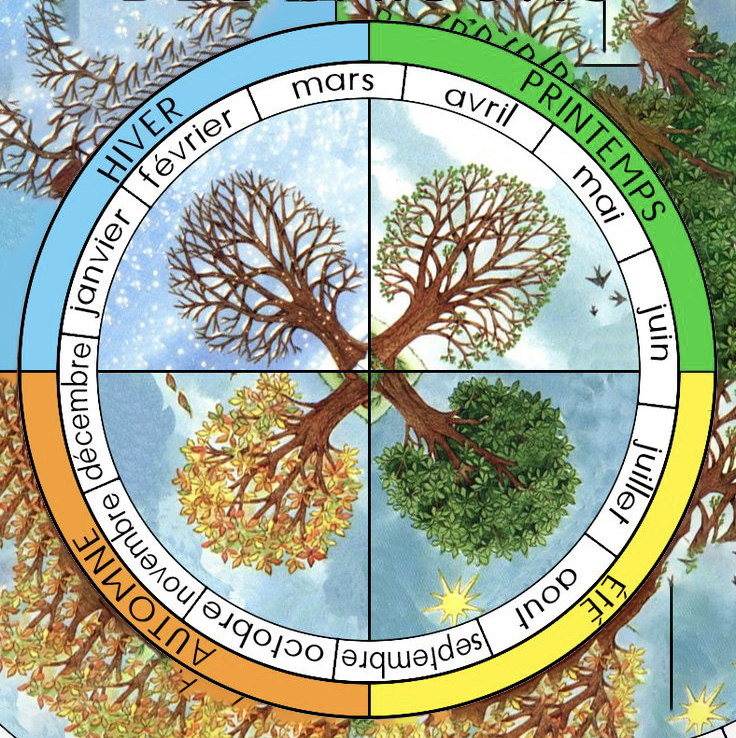
January – The 31st of December is an unmissable, popular, and welcoming night which marks the end of the holiday season. It is New Year of course, celebrated in France as it is almost everywhere on Earth. At midnight they wish each other a happy new year, make a wish and make new year’s resolutions to improve themselves. A study from the University of Bristol has found that 88% of them are forgotten in a matter of days. One way or another, the French always say ‘it’s the thought that counts.’
January has returned. Fear not, my love! “What matter the year that will come and those who will pass, My love blossoming in its infancy in my soul; your benign beauty blossoming in your figure.’ – Victor HUGO
February – The Agricultural Show takes place in Paris – the countryside takes to the capital for two weeks to discover the country’s biggest cows and its cutest lambs. Politicians come to shake hands, it is hard work for all.
On the 2nd of February Candlemas is celebrated, the French make and eat pancakes. 2 or 3 weeks later is Shrove Tuesday (the last day before Lent). The French do not fast (at least not anymore), but take advantage of the pagan celebration to feast. Again, it is traditional to eat pancakes, which the French love!
‘‘Oh that warm February morning! The untimely South came to wake our absurd indigent memories, our youthful wretchedness.’ – Arthur RIMBAUD
March – To save energy by using the natural daylight, France moves to summer time, this means that everybody puts their clocks forward by an hour. In the office, at home, and at the café, people argue over whether an hour has been ‘lost’ or ‘gained.’ The same debate is had six months later when the clocks go back. March is the month of rain showers. It may be raining, but spring is coming.
‘Spring has made haste. March dressed up as May : As the wild hedgehog, it brings the powerful and frightening sun, with the cold which sharpens its shivering silver spikes.’ – Louis BOUILHET
April – The 1st of April is April Fool’s day; children stick paper fish on the backs of their friends and passers-by, and students onto the backs of their teachers. As the song goes:
‘What makes kids laugh never lasts, it doesn’t make anyone laugh when they have grown up’ – BEAU DOMMAGE
May – Cannes Film Festival takes place on the Côte d’Azur. It is the biggest date in the film calendar. The extravagantly clothed stars walk up the steps of the palace, all dressed in red. At the end of the festival the Palme d’Or is awarded for the best film. The French Open begins in Paris one week later. With all the biggest players present the stars are back out, we watch them as their eyes follow the ball. May is also a revolutionary month (it is well-known that in May, you can do what you want), it is a month for transition, and for flowers.
‘It is May, beautiful May which repairs the broken, The ivy, the vines, the rosebushes, The Rhine’s winds shake the rosebushes. The chattering reeds and the naked vineflowers.’ – Guillaume APOLLINAIRE
June – Music is in the spotlight in June. The 21st is the festival of music. Many concerts happen all over France. 12th Graders finally sit their ‘baccaluréat’ exam, which marks the end of their school lives. They (almost) all pass and begin to let go of their adolescence. The baccalauréat signals the beginning of the summer holidays.
‘It was in June, we were in the garden and it was our moment, and our day; We watched with unrequited love, everything that seemed to us to be slowly opening up. We watched, and we loved the roses,’ – Émile VERHAEREN
July – The 14th of July is France’s national holiday. In the morning there is a parade on the Champs-Elysées; at lunchtime the president gives a speech Finally, in the evening, there are fireworks, dancing, and accordion music in all the towns and cities of France. ‘Alors, on danse.’ – STROMAE
July is also the month of the ‘Tour de France,’ a long cycle race which goes through the countryside, cities, and mountains while the whole world watches on. It is a great advertisement for France, and traditionally finishes in Paris at the Champs Elysées with the award of the yellow, green, and spotted jerseys.
‘Pretty nightingale and apple blossom, If snow falls in july, Pretty nightingale and apple blossom, It means that the sun shines in January, Pretty nightingale and apple blossom.’ – Robert DESNOS
August – The month of all kinds of festivals, they take place all over France, showcasing music, dance and theatre. August is the month of shooting stars, and people get together to watch them in the sky.
‘The lamp lit up the storm’s misgivings, and the flawless August days, It softly embraced the atmosphere, and the cheeks of its companion, And closed its eyes. And like leaves in the night, Loses itself to the horizon.’ – Paul ELUARD
September – The grapes are ripe, it’s harvesting season. The end of summer brings everybody’s mood down, but the Indian summer, surprising us in the middle of September, cheers us up.
‘Here comes the radiant cold of September : The wind wanted to come into the bedrooms and play ; But the house seemed too strict that morning, Leaving it weeping in the garden.’ – Anna de NOAILLES
October – The countryside takes to Paris once more as new cars are displayed to the public at the Automobile Show. At the end of the month, France moves to winter time (see March), the cold begins to settle in and the wind becomes stronger.
‘The leaves fall and get shovelled up.’ See, I haven’t forgotten; dead leaves get shovelled up, As do memories and regrets.’ – Jacques PRÉVERT
November – Wine-tasting takes place all over France to celebrate the new Beaujolais, young wine gets drunk in the months after its production. It may not be the best, but it is appreciated nonetheless. On the last Thursday of November, people take to the streets for ‘Black Friday’ sales, these are also young, but less intoxicating. The older generation are worked up because ‘we are losing traditions’ and conservatives fear as the world becomes more globalised. In November, we approach the fireplace.
‘When autumn, shortening the days as it consumes them. Blows out fiery evenings as ice dawns upon them, When the November mist floods the blue skies, The trees whirl and the leaves rain down, Oh my muse! As you gather yourself in my soul. Like an entranced child approaching a fire.’ – Victor HUGO
December – From the 2nd of December, the days get longer again. On the evening of the 24th, christians celebrate the birth of Jesus, and all French families of all faiths get together. The tree is decorated, everybody keeps warm, waiting for Father Christlmas to deliver the presents, and everybody feasts. Christmas is the most important family celebration of the year.
‘It is December. And how nice it is. My lord, in the little bedroom ! The fireplace full with burning coals, colouring the ceiling with a soothing reflection.’ – Paul CLAUDEL
SCHOOL IN FRANCE
All PIE exchange students go to school, this is therefore, alongside family life, the other main part of the exchange programme. Here, we will broadly outline the key characteristics of French school life, both the academic side, and the day-to-day life of a pupil. While school is above all a place for learning, it is also an important part of life, for meeting people and having new experiences. It is also worth having a look at our 3.14 magazine’s articles on the French school experience.

PARCOURS SCOLAIRE D’UN JEUNE FRANÇAIS
En France, le parcours d’un élève de la maternelle au secondaire est structuré en plusieurs cycles d’apprentissage qui s’étendent sur plusieurs années. Chaque étape vise à développer des compétences et des connaissances adaptées à l’âge et au niveau de l’élève, pour le préparer aux études supérieures ou à la vie professionnelle.
NURSERY – ELEMENTARY – MIDDLE SCHOOL
Here is an outline of the different stages of the French education system :
- Nursery school (3-5 years old) : Small, middle, large years (3 years)
Objectives : Development of language, socialising, discovery of the world, and motor development. - Elementary school (6-10 years old) : CP, CE1, CE2, CM1, CM2 (5 years)
Objectives : Mastery of key skills (reading, writing, maths) - Middle school (11-14 years old) : 6th, 7th, 8th, 9th grade (4 years)
Objectives : Deepening of knowledge, preparation for the national ‘brevet’ (DNB) exam, sat by students at the end of 3rd grade. After this they must choose their next stage (general, technical or professional high school). - High school (15-17 years old) : 10th, 11th, 12th grade (3 years)
Objectives : Specialisation, completion of the ‘Baccalauréate’ exam, which marks the end of secondary school and enables progression to higher education.
HIGH SCHOOL
- Exchange students are usually educated at French high school, usually a public one.
- The French school system tries to give all students an equal chance of success, it rarely succeeds in doing so, but this idea is fundamental to the school system.
- Public school is free. Most private schools are fee-paying, but most of these have a contract with the government to make education much more affordable than in many other countries.
- Public school is secular. Schools should not show any preference when it comes to political or religious issues.
- The French school system is centralised : a result of a long history of centralisation which is evident in the whole country.
- THE SCHOOL WEEK – The school day looks broadly similar throughout the country. French high school students usually have between 20 and 30 hours of class a week (about 6 hours a day). They may work on Saturdays. They usually have very busy timetables, starting lessons early in the morning and finishing at the end of the afternoon (5 to 6 PM). At high school, hours are more flexible than in middle school : depending on classes and the year you are in. Lessons are usually 50 to 55 minutes long, but students may have double lessons. There is a morning and afternoon break and a longer lunch break (half an hour to 2 hours depending on timetables). Most French high school students eat in the lunch hall in the school.
- French school is very focused on knowledge acquisition.
- In France, teachers will often give lectures, and prefer this style of teaching to group work. The teacher/student relationship is quite formal, and less unique between pupils. You must refer to your teacher by ‘vous’ to show respect.
- High school takes three years : 10th, 11th, and 12th grade. At technical and general high school, the 10th grade is seen as a year for the student to decide in which direction they would like to take their studies. The student can evaluate their strengths and preferences before deciding on their specialisation for the final two years.
- Only 2 hours a week are typically dedicated to sport. Sports are played after class.
- French high school students tend to be under a great deal of pressure, with the school day, exams, results, meetings with teachers, etc. It is possible to resit a class if their results are not good enough, they can even choose a different class if they like.
- As we have seen, parents are particularly concerned by their children’s exam results, so they will feel the same about their exchange student. This means that the exchange student must have a positive attitude towards school and work just as on their classwork, homework and behaviour as their classmates. They must also ask for help from their parents, teachers, or the children from their host families if needed. French families are always ready to help their exchange student.
- A French high school student’s studies revolve around several important stages, all of which lead to the passing of the ‘baccalauréat’ exam. Here is a description of how the three years of high school are organised, with the different available pathways, options and processes.
10TH GRADE
10th grade is a year to discover what they want to specialise in from 11th grade before making their decision :
- French : 4 hours
- Humanities : 3 hours
- Modern Languages : 5½ hours
- Maths : 4 hours
- Physics/Chemistry : 3 hours
- Biology : 1½ hours
- Physical Education : 2 hours
- Civics : ½ hour
- Economics : 1½ hours: 10th grade is made up of these 8 compulsory subjects or universal classes for all students and one or two optional classes chosen at the end of 9th grade
Optional classes (e.g latin, greek, art, music, etc.) take up from 1 ½ to 6 hours a week depending on the students’ choice. Personal classes usually are around 2 hours a week, or 72 hours a year.
11TH AND 12TH GRADE
At the end of 10th grade, the student must make their choice of three speciality subjects to study from 11th grade (they will drop one in 12th grade). They have the choice from the following 13 subjects :
- Arts (choice depends on the school but includes fine arts, film, dance, art history, music, or theatre)
- Biology-ecology (only in agricultural schools)
- Physical education (for those not choosing this option in 12th grade)
- Humanities
- Modern Languages
- Classics
- Maths
- IT
- Physics/Chemistry
- Biology
- Engineering
- Economics
IT IS WORTH NOTING that foreign students do not necessarily have access to all these options. Some schools let them choose some specialities but not others (depending on the number of available places).
THE BACCALAUREAT AND WHAT FOLLOWS
- High school ends with a final national exam, the ‘BACCALAUREAT,’ commonly known as the ‘BAC’.
- This is a national diploma, introduced by Napoleon, marks the end of secondary education and enables passage to university. You need an average of 10/20 to pass. The aim of the baccalaureat is to assess the skills acquired during high school (through an exam and coursework) and to evaluate the level of qualification achieved, which will allow you to move on to university or enter the professional world.
- The baccalaureat is a very important exam in France, and is crucial for all students. It is a rite of passage for millions of high schoolers.
- However, because almost all French students get the bac and that French universities are struggling to accommodate a growing number of students, a new system has come in over the last 10 years. ‘PARCOURSUP’ is a government system which is used to simplify and make more transparent the process of getting into universities, in order to better manage the flow and pathway of students. ‘PARCOURSUP’ is based on the ‘composition of requirements’ of future students. After looking at all the applications after a long and complicated selection process, the student settles on their desired path (channel and university). This system for university application causes students a lot of stress, but has proven to be more effective for administrative purposes.
- IT IS WORTH NOTING that many PIE exchange students pass the BAC despite the fact that they don’t go to university in France, but the option to pass this exam depends on the wishes of the school and the department of education.
INFORMATION
Here is some useful information from PIE about hosting exchange students. This is all basic information, for more see PIE’s:
> ‘Being a Successful Host Family,’ a comprehensive manual for families interested in being part of the programme. It is full of useful advice, mostly from experience.
>‘Being a PIE Exchange Student in France’ – a booklet for potential students to help them understand the challenges the experience poses and how to overcome them.
These are sent to the families and their exchange student during the preparation stage
Dates et durée des séjours
| Programme | Date de naissance | Arrivée en France | Disponibilité |
| Year-long Exchange | 14-18 years upon arrival in France |
End of January or August | OPEN |
| One-semester Exchange | 14-18 years upon arrival in France |
End of January or August | OPEN |
| One-term Exchange | 14-18 years upon arrival in France |
End of January or August or beginning of November | OPEN |
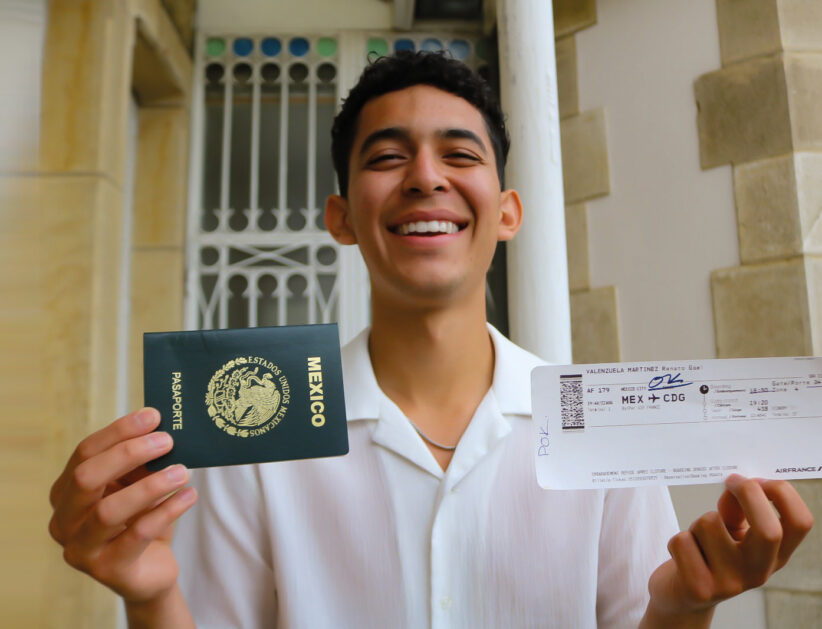
Orientation and Language Course – Most of our students on our ‘acceuil’ programme have an initial orientation course in Paris when they arrive. It can take between 2 and 7 days, depending on where the student is from, the time of year, and the date of the placement. This ‘Welcome Course’ is managed by PIE, organising accommodation, meals (at least 2 per day), sightseeing in Paris, presentations, French lessons, and so on. The course ends with a talent show, organised by the students and their supervisors, and a meeting when the host families come to collect their exchange students. Those not doing the course usually meet their host families at the train station or airport.
Money – Students should pay for anything that is not provided by the host family. PIE suggests bringing around 200 euros of pocket money per month, it would be advisable to bring a bank card, (VISA is preferable as it is the most common in France).
Travelling – Every year, during the Easter holidays, PIE organises a one-week trip to the Côte d’Azur (2km from Monaco). It comes at a reasonable cost, which includes half-board accommodation. There will be 2 or 3 PIE volunteers or employees who will take responsibility for the group. Trips to Monaco, Nice and more are organised, and the exchange students will get the opportunity to meet others during this springtime holiday, they will also get the chance to discover a beautiful part of the South of France and enjoy the sun, the beaches, and the Mediterranean.
Volunteers – All exchange students are assigned a PIE volunteer who will have regular contact with the student to ensure all is well. Families are encouraged to make contact with them whenever needed (questions, discussions, disagreements or issues). Warning: the majority of volunteers only speak French! If they are unavailable, PIE employees will be there to make up for their absence.
Arrival – Usually at the end of August, in November or in January.
Sign up – To get the details of a PIE delegate abroad, send an email to info@piefrance.com giving your full address. If you are interested in becoming a host family, use the same email or call the office at 04 42 91 31 00.






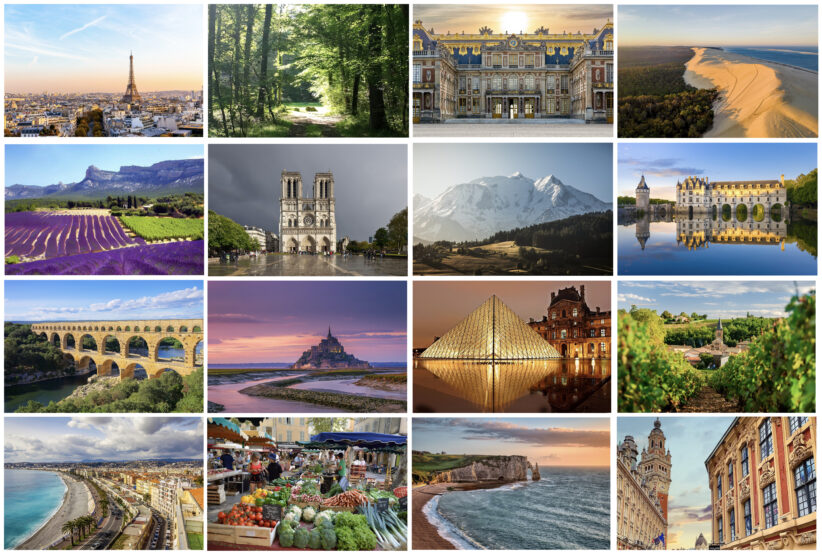
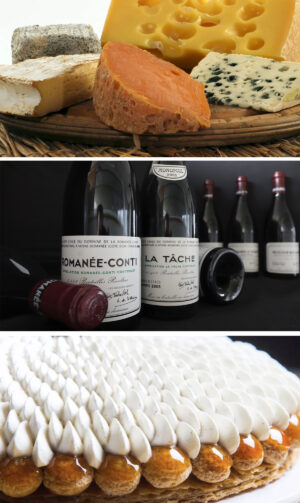 GASTRONOMY
GASTRONOMY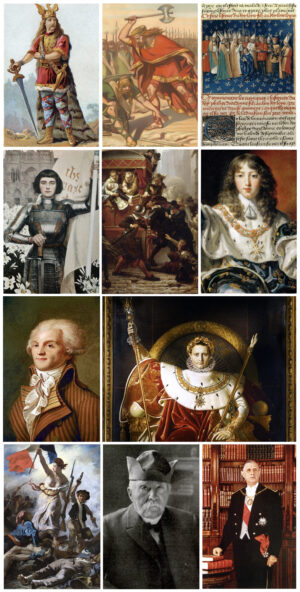
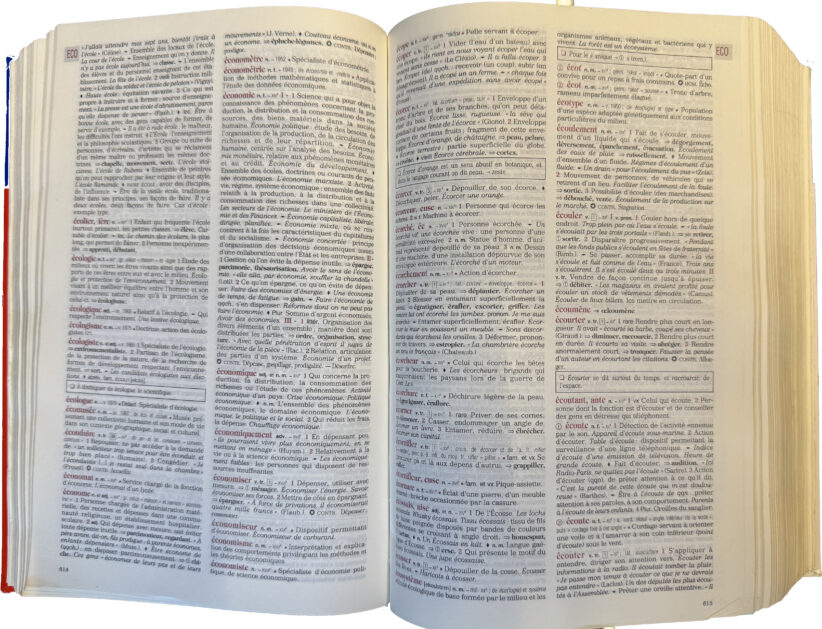 THE LANGUAGE
THE LANGUAGE KEY PEOPLE
KEY PEOPLE 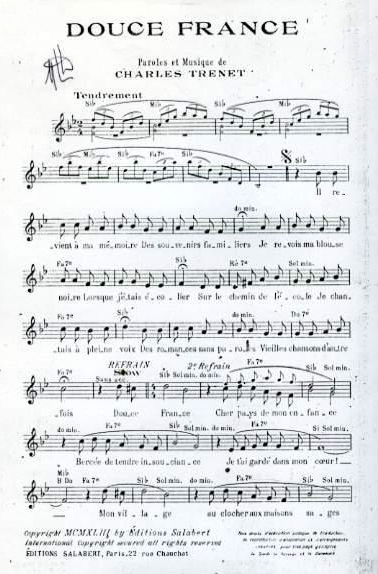 FRANCE:
FRANCE: